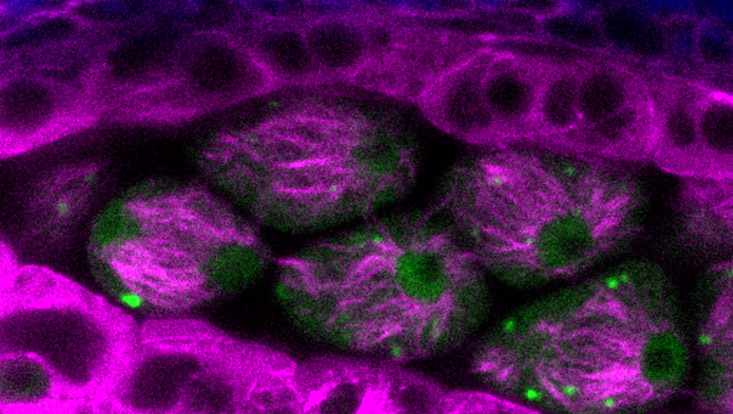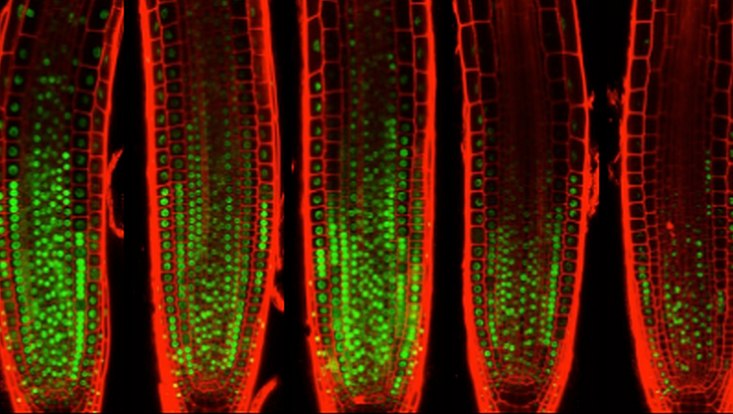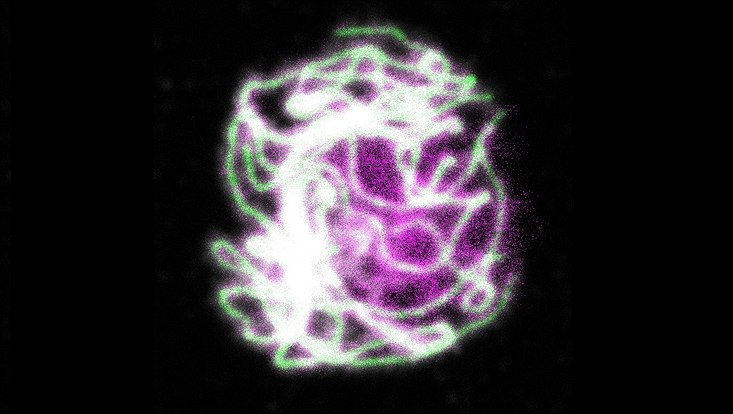How Plants Safeguard Their DNA During Heat: Unlocking a Vital Stress Response in Reproductive Cells
26 August 2025, by Website Team Biologie

Photo: UHH / Schnittger
As climate change causes more frequent heatwaves, protecting crop fertility is becoming urgent. Scientists at the University of Hamburg have now discovered a key way plant reproductive cells defend their genetic material during heat stress—paving the way for more climate-resilient crops.
The team uncovered that a protein called TAM (an A-type cyclin) is specifically sent into “stress granules”—temporary, membrane-less cellular compartments—when plant reproductive cells face high temperatures. This process ensures that DNA division during reproduction is completed correctly, maintaining genome stability from generation to generation.
Stress granules as cellular first aid stations
Stress granules (SGs) gather vital proteins and RNA molecules under extreme conditions, helping to protect and temporarily pause cellular processes until the stress is over. Until now, their precise role in plant reproductive cells was unclear.
Studying the model plant Arabidopsis thaliana and using advanced imaging, researchers showed that TAM is recruited into SGs after heat. This targeting is controlled by a specific region in TAM. Plants engineered with a version of TAM that cannot enter SGs—while still functional under normal conditions—failed to complete proper cell division under heat. As a result, they produced abnormal gametes, leading to genetic imbalance or polyploid offspring.
Impact for food security
“Understanding how plant reproductive cells protect their chromosomes under stress is essential for breeding heat-resilient crops,” says lead author Prof. Arp Schnittger. “Our results reveal a new regulatory mechanism, where a critical protein is actively sequestered in stress granules to ensure robust reproduction during heat.”
This work points to fresh strategies for developing heat-tolerant crop varieties, safeguarding yields as the climate warms. Future research will explore how other components work together in SGs to support genetic stability.
The study, “The recruitment of the A-type cyclin TAM to stress granules is crucial for ploidy stability under heat,” is a collaboration at the University of Hamburg’s Department of Developmental Biology with partners in China and Japan. Notably, this work represents the first joint publication of a recently established research group on biomolecular condensates (named BIKON) at the University of Hamburg and funded by a federal excellence grant.
The results were published in the journal Science Advances:
Joke De Jaeger-Braet et al., The recruitment of the A-type cyclin TAM to stress granules is crucial for meiotic fidelity under heat. Sci. Adv. 11, eadr5694 (2025). DOI:10.1126/sciadv.adr5694


